Description
ABSTRACT
An Analytical Survey of Nigerian Tax Treaties
Dr. Kareem Adedokun*
Nigeria signed several tax treaties otherwise known as Double Taxation Arrangements since independence which created binding tax obligations between it and other countries. Their objects are principally to avoid double taxation and prevent fiscal evasion. By policy, Nigerian tax treaties are not self – executing; as they are required to be domesticated in conformity with constitutional provision before they can impact on any domestic tax laws. Recent inquiries reveal that, though, the Federal Government is duty bound to effect the domestication, but its practice is at variance with the Transformation and Specific Adoption Theories recognised by the Constitution. In order to identify the cause and effect of the neglect of the theories on the Nigeria fiscal system, this paper, using doctrinal approach, traces the historical antecedents of the Nigerian tax treaties and further embarks on in-depth analysis of their contents and status within constitutional jurisprudence. The paper finds that the non-domestication of the current Nigerian tax treaties in a manner prescribed by the Constitution is capable of occasioning actual or tempted tax evasion. To tap the advantages of tax treaties to the fullest, and to avoid using them as escape route from tax liability, the paper recommends that the National Assembly should enact all the current tax treaties in Nigeria into the corpus of Nigerian domestic tax laws in a manner that their status will align and comply with the provision of section 12 of the 1999 Constitution to make them enforceable.
Keywords: Double taxation, Permanent Establishment, Tax Treaty, Foreign jurisdiction, Constitution.
INTRODUCTION
The imposition of tax on any item is dependent on the movement and location of commercial activitis. With the extensive integration of national economies and the growth in the number of enterprises operating globally, emergence of bilateral tax treaties becomes imperative.1 The fact that the commercial activities are now operated beyond the territorial borders of Nigeria to other sovereign nations shows the fact that Nigerian tax system does not and cannot operate in isolation from the rest of the world. Definitely, there must be interaction between the web of tax treaties and the domestic tax system in Nigeria. The income of a Nigerian company assessable to tax is either derived from a source in Nigeria or remitted to it,2 while the profits of a foreign company is chargeable to tax in Nigeria only if the company sought to be taxed has territorial contact in commercial activities with Nigeria through a fixed base or permanent establishment.3
It may happen that Nigeria and a foreign jurisdiction seek to tax the same income or gains, thereby making two countries having tax right and power over the income. The concerned authorities are usually the one in whose jurisdiction the income or gain accrues.
* Ph.D., BL. Senior Lecturer, Department of Business and Private Law, College of Law, Kwara State University, Malete, Kwara State, Nigeria.
- Michael Kobetsky, International Taxation of Permanent Establishment, Principles and Policy (Cambridge University Press 2011) 1.
- Section 9(1), Companies’ Income Tax Act(CITA) 2004. See also section 13(1), CITA 2004.
- Section 13(2) CITA.

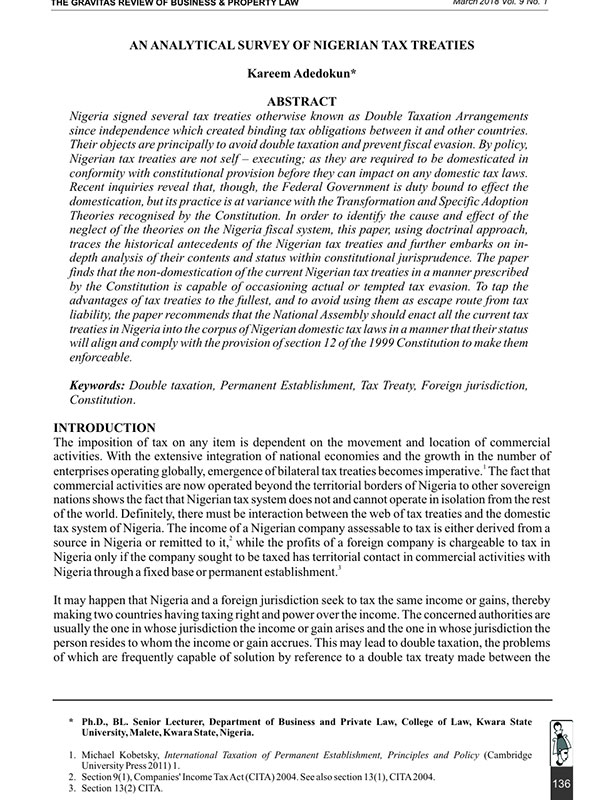
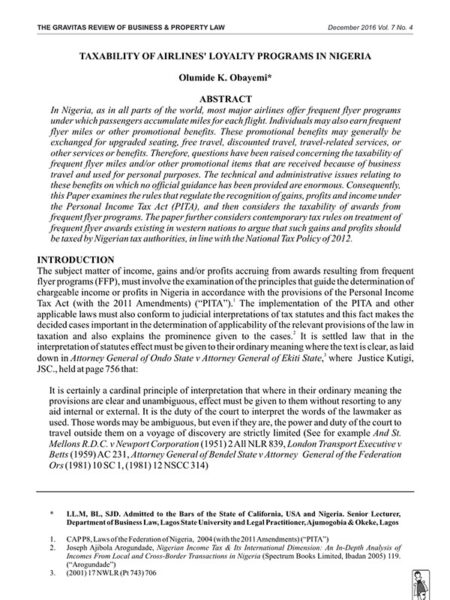
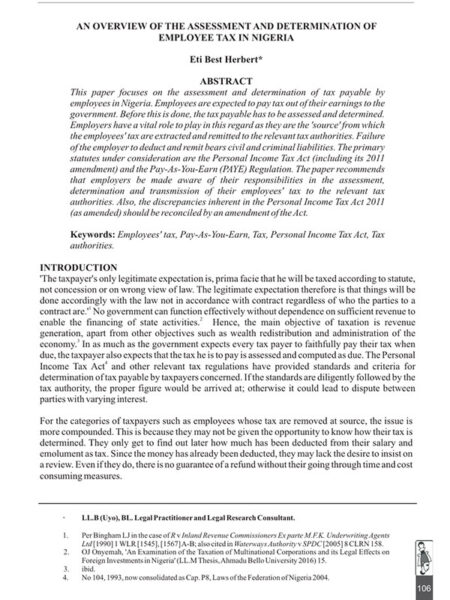
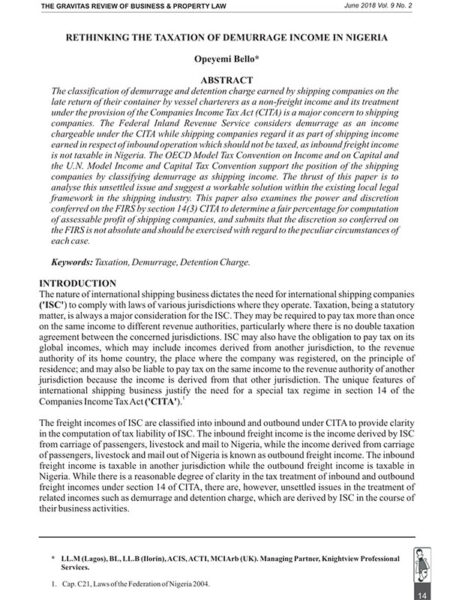
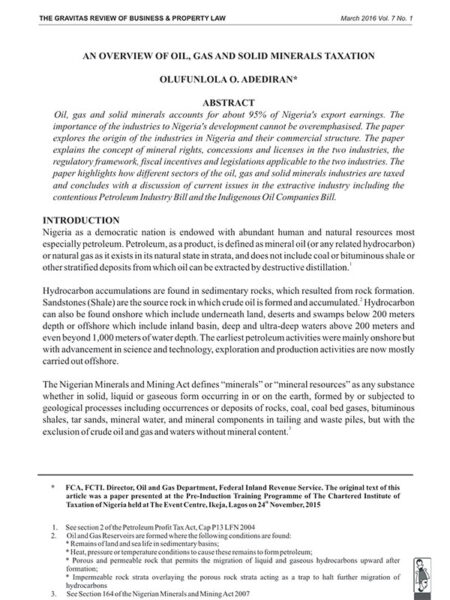


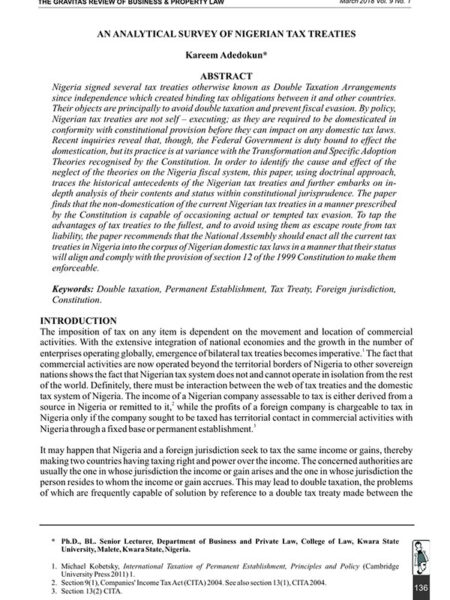
Reviews
There are no reviews yet.